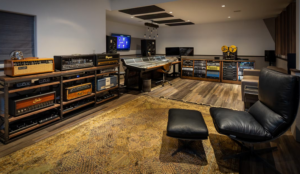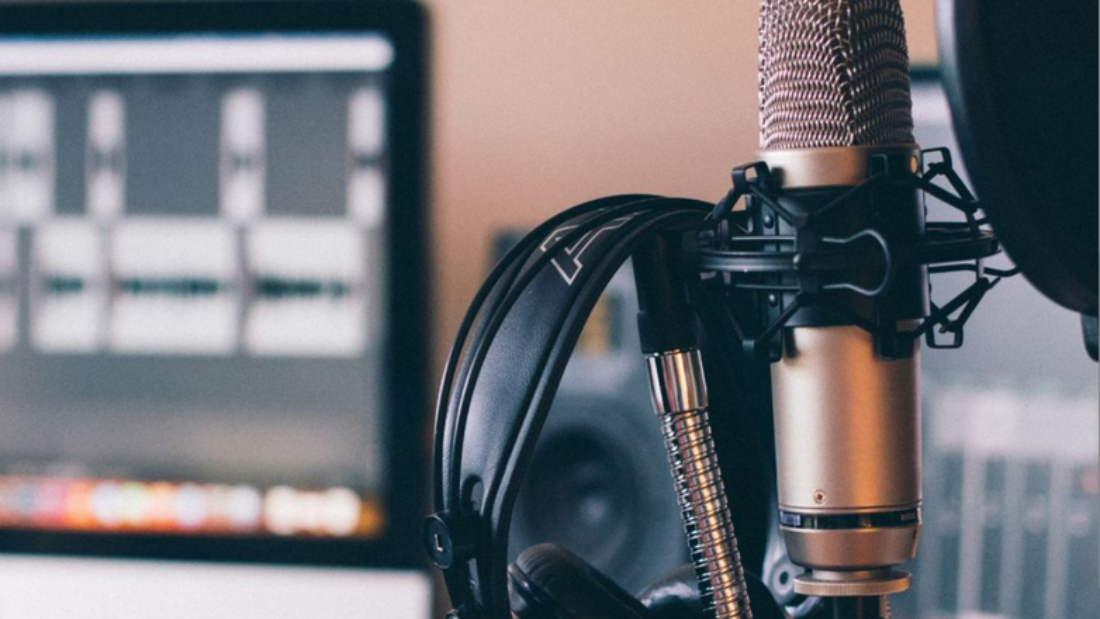Recording studios often cloak themselves in mystery. What occurs behind the closed doors of these magical places? Here, we unveil 10 things you might not have known about studios.

Studio A at Capitol Records
Studio A at Capitol Records, a legendary recording studio, welcomed some of the biggest names in music history. Its unique acoustics contribute to the studio’s renowned warm and rich sound. Moreover, the studio boasts some of the world’s best recording equipment.
The first recording studio
The first recording studio was a barn in Menlo Park, New Jersey. In 1877, Thomas Edison recorded the first human voice on a phonograph in this barn. Edison’s invention revolutionized the way we consume music, and it laid the foundation for the modern recording studio.
Acoustic treatment
Recording studios apply acoustic treatment using a variety of materials like foam, wood, and fabric to eliminate unwanted noise and reflections. This process is crucial in establishing a clean and accurate recording environment.
Microphones
Recording studios employ a variety of microphones to capture different sounds. Engineers choose specific microphones designed for vocals or instruments based on the sound they aim to achieve during the recording process.
Mixing console
The mixing console, an essential component of a recording studio, serves as the heart of the operation. It combines various tracks of a recording while allowing for adjustment of volume, panning, and effects on each track. Although complex, the mixing console plays a vital role in crafting a polished recording.
Mastering suite
Within the mastering suite, the mastering engineer meticulously applies the finishing touches to a recording, perfecting its sound quality. They utilize an array of tools to fine-tune the recording, making adjustments to EQ, compression, and limiting for optimal results. Moreover, they may incorporate effects like reverb and delay to infuse depth and richness into the recording.
House band
Many recording studios have a “house band” of musicians who are available to play on recordings. This can be helpful for artists who don’t have their own band or who need additional musicians for their recordings. House bands are typically highly skilled and experienced musicians who can play a variety of styles.
Other services
Recording studios often offer a variety of other services, such as video production, photography, and songwriting. This can be convenient for artists who want to produce a complete package for their music. Some studios even offer services such as album artwork design and marketing.
Cost
Recording studios can be very expensive to operate. This is why many studios charge artists by the hour or by the day. The cost of a recording session will vary depending on the studio, the equipment used, and the length of the session.
Learning
Recording studios can be a great place to learn about music production and recording. Many studios offer internships and training programs. These programs can teach you the skills you need to become a professional audio engineer or producer.
Uncommon Terminology
- Baffle: A sound-absorbing material used to reduce sound reflections.
- Condenser microphone: A type of microphone that is very sensitive and is often used to record vocals.
- Dynamic microphone: A type of microphone that is less sensitive than a condenser microphone and is often used to record instruments.
- EQ: Equalization. A process of adjusting the frequency response of a recording.
- Faders: Knobs that are used to control the volume of each track on a mixing console.
- Panning: The process of moving a track from left to right on the stereo spectrum.
- Reverb: A type of effect that creates the illusion of space in a recording.
- SPL: Sound pressure level. A measure of the loudness of a sound.
- Transients: The initial attack of a sound.
Conclusion
Recording studios are fascinating places where music comes to life. By understanding the basics of recording studios, you can gain a deeper appreciation for the music you love. Whether you are a musician, a fan of music, or simply curious about how music is made, I encourage you to learn more about recording studios.
You will find the following information useful :

